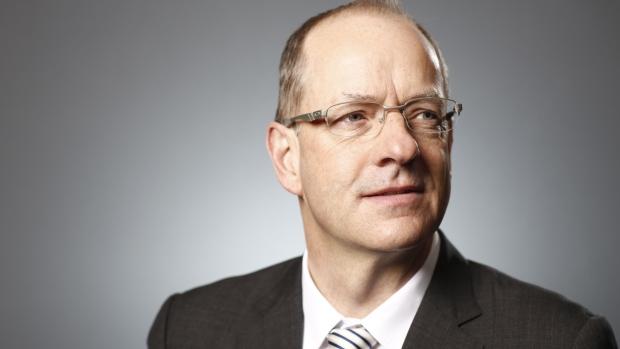Apr 16, 2024
UnitedHealth CEO Defends Change Healthcare Deal After Hack
, Bloomberg News

(Bloomberg) -- UnitedHealth Group Inc. Chief Executive Officer Andrew Witty said the cyberattack that interrupted payments throughout the health-care system for weeks would have been harder to recover from if UnitedHealth didn’t own the company that hackers targeted.
UnitedHealth is under fire for its response to the attack that halted the flow of money and data in the US medical system, prompting outcry from hospitals, doctors and lawmakers. Some of the criticism has focused on the size of the company and its deep reach into many facets of the industry. The insurer faces scrutiny from antitrust regulators frequently over its expanding footprint.
Yet Witty suggested that scale, and UnitedHealth’s deep pockets, were an asset in responding to the incident.
“Without UnitedHealth Group owning Change Healthcare, this attack would likely still have happened, and it would’ve left Change Healthcare I think extremely challenged to come back,” Witty said on a call with Wall Street analysts Tuesday.
At a hearing in Washington later the same day, lawmakers disagreed.
“UnitedHealth was a target because of its size,” Rep. Anna Eshoo, a Democrat from California, said at a House Energy and Commerce Health Subcommittee hearing, minutes after Witty addressed investors on the company’s earnings call.
“The attack shows how UnitedHealth’s anticompetitive practices pose a national security risk.”
Witty is expected to testify at a Senate hearing later this month. His remarks on the investor call may preview the company’s message there.
On the earnings call Tuesday, Witty defended the deal to buy Change Healthcare that the US Department of Justice attempted to block, saying it was “important for the country that we own Change Healthcare.”
The February cyberattack cost UnitedHealth $593 million in direct response costs in the first quarter, and an additional $279 million in lost revenue.
But the company excluded much of the impact from the adjusted financial results it reported to Wall Street, and the shares rallied on earnings that were better than investors were fearing. As a result of the hack, the insurance company temporarily suspended some of the restrictions on care that create extra hurdles.
While executives acknowledged some providers were still facing difficulties getting paid, Witty said the company planned to bring Change Healthcare back “much stronger than it was before.”
In Washington, meanwhile, lawmakers’ attention was on the fallout from the hack.
“Providers large and small went unpaid, and in some cases, still have not been made whole,” said House Energy and Commerce Health Subcommittee Chair Brett Guthrie, a Republican from Kentucky, during the Tuesday hearing.
“We still don’t know how much sensitive information might have been compromised.”
©2024 Bloomberg L.P.





